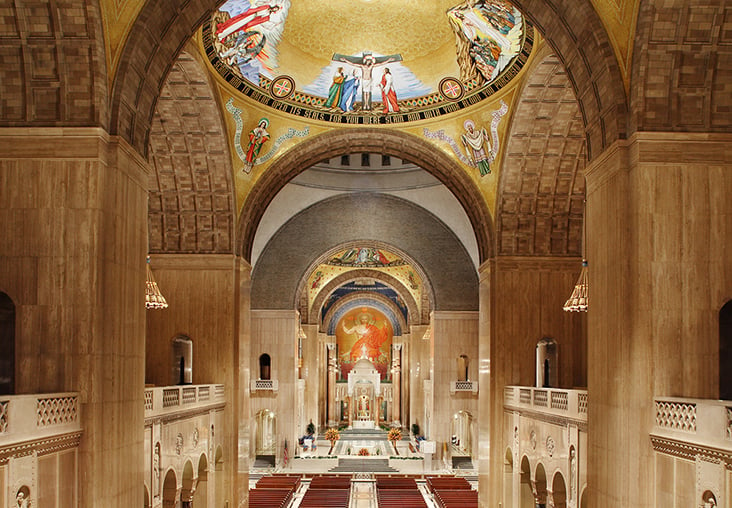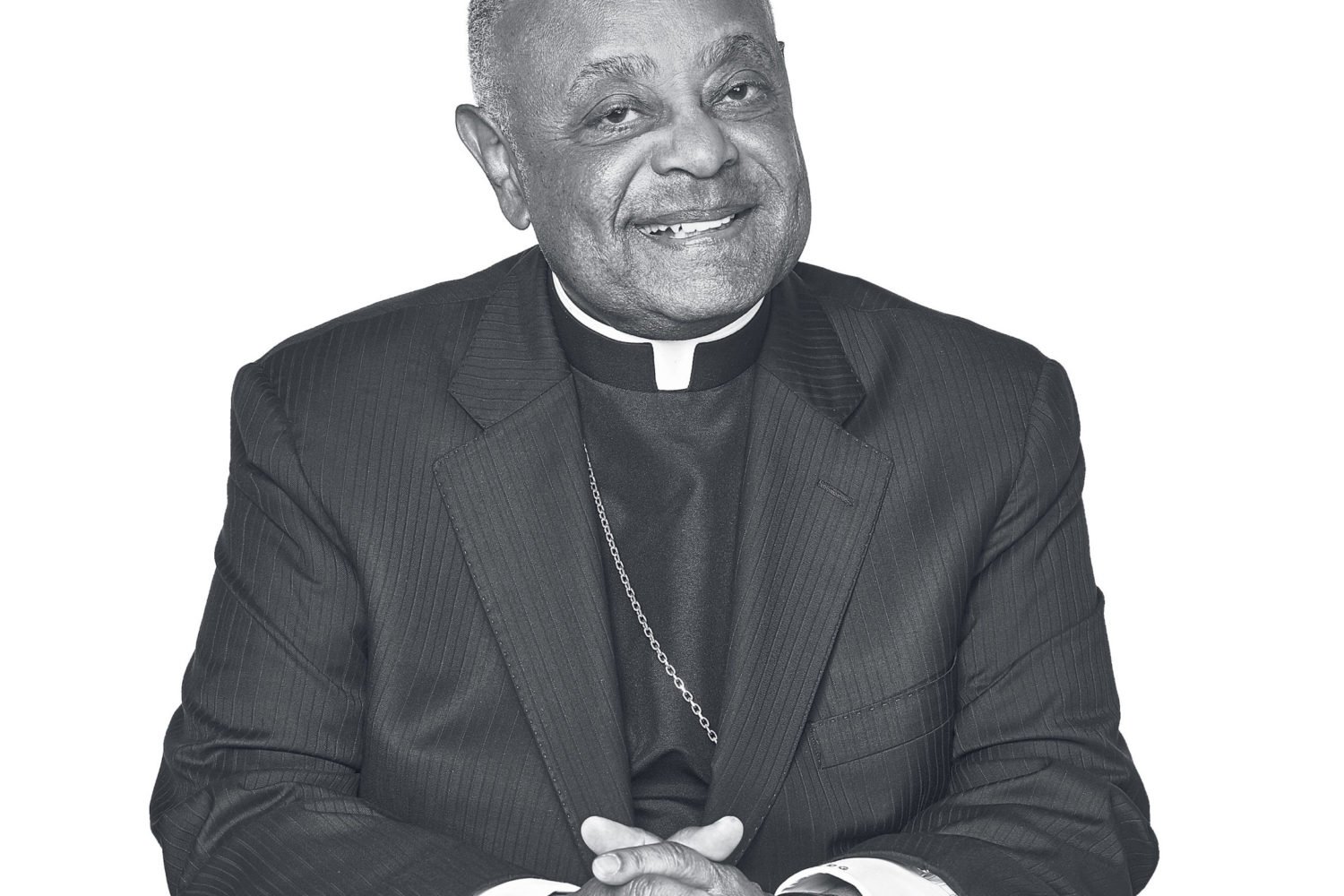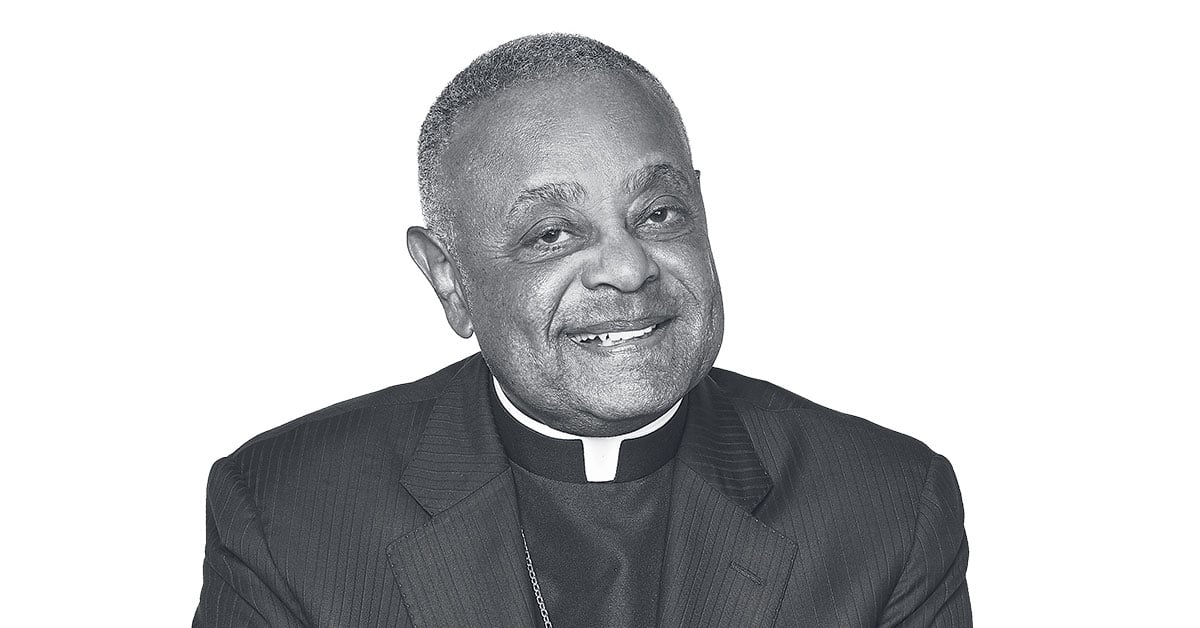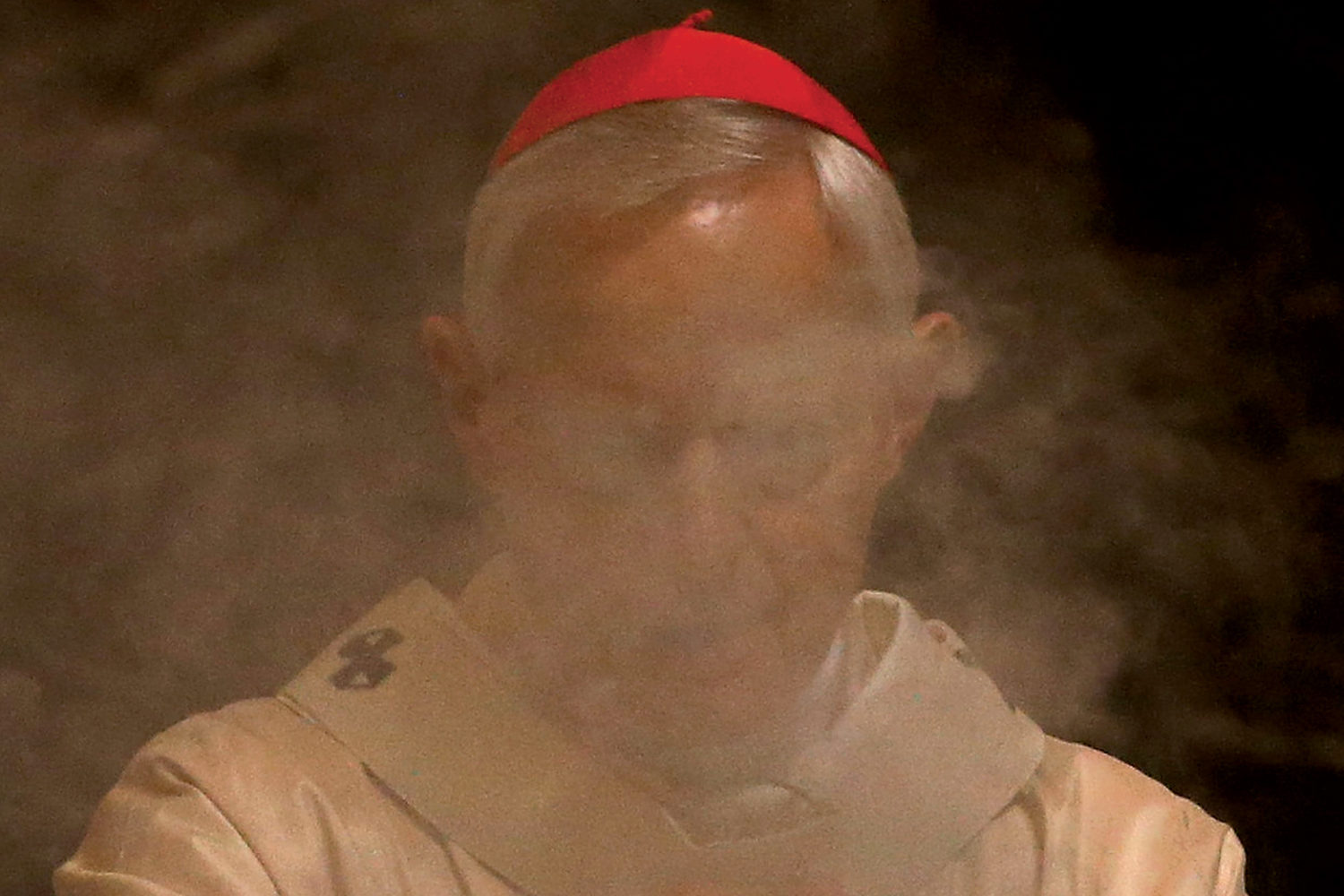Today, the Vatican released a 461-page report detailing how much the Catholic Church knew about the misconduct of former Archbishop of Washington Theodore McCarrick, who was stripped of his priesthood in February 2019 after a slew of credible allegations of sexual assault and sexual misconduct with minors came out.
Most of the allegations are from his time as Bishop of Metuchen, New Jersey, and subsequently as Archbishop of Newark. Here are some of the most damning and disturbing details of the report.
McCarrick’s victims tended to be the sons of families he was close to or seminarians
An individual identified as Mother 1 in the document provides details suggesting McCarrick would groom her sons and other young men. He would call the sons of families he was close with his “nephews” and would have them refer to him as “Unk” or “Uncle Ted.”
Mother 1 recalls a conflict she had with McCarrick when one of her sons was going to a dance his freshman year of high school. “Ted did not want him to go to the dance, insisting that my son “owed him” and that he should go away on a weekend trip with Ted,” she said. “Ted was intimidating him and telling him that instead of going to the dance he should go with him to a place called Eldred. And the pressure he put on my son reached the point that my son came to me in tears.”
It was known through the Church that McCarrick would take overnight trips like the one aforementioned with young men or seminarians to locations like a Jersey Shore beach house or a New York apartment he had. McCarrick would arrange these trips so that there were more guests than beds, and have one of the boys or men share a bed with him. While the sleeping arrangements were seen as unconventional and perhaps inappropriate, they weren’t immediately tagged as sexual in nature.
Many in the Church were aware, though, of allegations that McCarrick would often ploy these underage boys with alcohol on their trips, and would insist he and his bedmate slept in just their underwear. Multiple individuals reported McCarrick initiating sexual activities in bed such as back massages, buttock fondling, and even attempted penetration.
An individual identified as Priest 4 recalls McCarrick wrapping himself around him when the two shared a bed at the beach house, saying he could feel McCarrick was sexually aroused. “I told him point blank, “I don’t like this,” Priest 4 says. “And he said, “Oh, I’m not doing anything;” “Uncle Teddy is under pressure;” “I don’t mean anything;” “Oh, it’s just a rub down, it’s ok.”
In an even clearer demonstration of McCarrick’s abuse of the power dynamic, a testimony from a Brazilian then-seminarian identified as Priest 3 describes how McCarrick initiated sexual activities on three separate occasions, despite Priest 3 “trying to object.” McCarrick “tried to convince me that priests engaging in sexual activity with each other was normal and accepted in the United States, and particularly in that diocese,” Priest 3 says. He reports feeling “conflicted, confused, and afraid” and especially vulnerable given his immigration status at the time.
McCarrick was brazenly open with his misconducts
Mother 1 recalls a time when she saw McCarrick sitting on her couch with one of her sons on either side, massaging their inner thighs. She adds McCarrick would also embrace her teenage son from behind, holding him close and rubbing his chest.
Even with his more explicit acts, McCarrick could be less than discreet. Monsignor Bottino recounts how at a dinner where McCarrick was clearly inebriated, McCarrick fondled a young cleric sitting next to him. Bottino observed McCarrick “moving his fingers up and down on [the cleric’s] crotch” for several seconds, which was “plenty of time to see what he was doing,” the report says. “As McCarrick was touching him, the young cleric looked as though “he was paralyzed,” with his eyes “wide open” like “a deer in the headlights.””
An individual identified as Priest 1 shares a disturbing account of a night he, McCarrick, and two other priests shared a motel room with two double beds the evening after a fishing trip. As Priest 1 and his bedmate watched TV, Priest 1 looked over and saw McCarrick on top of the priest in the other bed, recalling that the two were touching each other. The priest on bottom said, “don’t worry, everything’s fine,” and McCarrick reportedly told Priest 1, “don’t worry, you’re next.”
Credible allegations of McCarrick’s actions were reported to Bishop Edward T. Hughes as early as 1989, but he covered it up
In 1989, after McCarrick had moved from Metuchen to become Archbishop of Newark, Priest 4 had a meeting with the man who succeeded McCarrick, Bishop Edward T. Hughes. Priest 4 told him about what McCarrick had done to him at the beach house. “Hughes did not react as though he had never heard of McCarrick’s behavior before,” Priest 4 recounts. “He was angry. He turned red. But he was not shocked or surprised by what I was saying. He did not act as though he was hearing something for the first time. I discussed it with him as something that I understood him to be aware of, even if he did not know what had specifically happened to me until I told him. I was speaking to someone who was obviously familiar with what I was describing, as uncomfortable as it was for him to have to face up to it.” Hughes told Priest 4 he would handle it.
Priest 3 describes a slightly different reaction when he informed Hughes of his experience in 1994, saying Hughes “was not acting like it was something that surprised him. He acted like it was something normal or something he heard about before.” Hughes told Priest 3 to forget about McCarrick’s misconduct and to forgive McCarrick “for the good of the Church.”
When McCarrick was being considered as a candidate for the Archbishop of New York or Washington in 2000, Hughes was asked to comment on allegations about McCarrick’s behavior. In a letter to to Rome, Hughes wrote “I have no direct, factual information concerning any moral weakness shown by Archbishop McCarrick, either in the past or in the present. Without any specific inquiries, I believe that the Archbishop’s reputation in the Diocese is generally good.”
Pope John Paul II trusted McCarrick’s word over the allegations being brought against him
When considering McCarrick for the Archbishop of New York or Washington, Pope John Paul II was made aware of the allegations about McCarrick’s conduct by multiple high-ranking church officials. He initially decided in July 2000 to keep McCarrick in his role as Archbishop of Newark, as he could not determine whether the allegations of misconduct had any truth in them.
A month later, McCarrick wrote to Pope John Paul II, categorically denying the veracity of any allegations against him, and intimating the then-Archbishop of New York brought such allegations forward because he didn’t want McCarrick as his successor. Pope John Paul II changed his mind soon after, leading him to confirm McCarrick as the new Archbishop of Washington.
Pope Francis would later cite this decision as why he didn’t order an investigation into McCarrick sooner. Francis was never informed of the allegations of McCarrick’s sexual assaults and misconducts before the Archdiocese of New York came forward in 2017, but he had heard rumors and whisperings about McCarrick’s behavior. Francis assumed these rumors were without foundation because “John Paul II was a man so morally strict, of such moral rectitude, that he would never have permitted a rotten candidacy to move forward,” he says.
McCarrick denied the allegations against him in disturbing ways
In the wake of the Boston Globe’s 2002 investigation of the Catholic Church sex scandal, the then-communications director of the Archdiocese of Washington grilled McCarrick on some of the rumors about him. The only thing McCarrick confirmed is that he had in the past shared a bed with seminarians, but only did so because he thought it would be inappropriate for seminarians to share a bed. He told the director, “I’m the Archbishop so nothing is going to happen.”
In 2006, McCarrick once again defended himself in a letter to Cardinal Re. He again didn’t deny he’d shared a bed with seminarians, but said he stopped that practice 10 years ago “because of the unhealthy concentration of the Media due to the crisis of sexual abuse of children by clergy.” He denied ever sharing a bed with an underage individual, and questioned the sexual assault allegations against him, writing, “if my calculation is correct, at the time of the supposed incident, this man would have been about 25 years old and I would have been about sixty. He would have been five inches taller and forty pounds heavier than I, making it most improbable that I could have attacked him.”
McCarrick concluded the letter by writing “I may not be a holy man. That I know and regret. I am too selfish and proud, but these accusations are not true and they have never been true. This I swear on my oath as a bishop.” Later, a letter from Nuncio Sambi shared McCarrick “swore before God, judge of the living and the dead, that he had never committed a homosexual act, either with a minor or with an adult” in a private meeting between the two.
Though a large amount of testimony came in the mid-2000s, Pope Benedict hid McCarrick instead of investigating the claims
In 2005, Archbishop Myers of Newark wrote about a mediation with an individual identified as Priest 2, who described the sexual harassment he had been subjugated to by McCarrick. In the letter sent to a papal ambassador, Myers mentioned the Diocese of Metuchen had two other documents detailing similar claims. “As I understand it, the document can become public either by a ‘leak’ or by a reporter operating under the ‘Freedom of Information Act,’” Myers wrote. “Pray God that this not happen.” The Diocese entered into an $80,000 settlement with Priest 2; there’s nothing to indicate the complaint or settlement was shared with Church higher-ups in Rome.
By late 2006, it was clear something needed to be done about McCarrick. Nuncio Sambi wrote in a letter to Cardinal Bertone, “While everyone recognizes Cardinal McCarrick’s warmth, skill, and political flair, he nevertheless keeps us all on edge for the possibility that he may be involved in sex scandals at any moment.” Sambi attached a letter to Hughes from Priest 1 detailing allegations against McCarrick that Sambi described as being “of such gravity and are so nefarious as to provoke in the reader a sense of disconcert, deep sorrow and bitterness.” Sambi suggested that “for once, it might be healthy if the ecclesiastical authorities were to intervene before the civil authorities and if possible before the scandal erupts in the press.”
In January 2007, these issues were brought to Pope Benedict XVI, who expressed concern about McCarrick but chose to suggest McCarrick limit his activities and retreat from the public eye instead of initiating a formal investigation. Priest 1 reached a $100,000 settlement with the Archdiocese of Newark and the Diocese of Metuchen in August 2007.

















